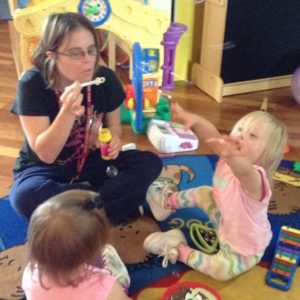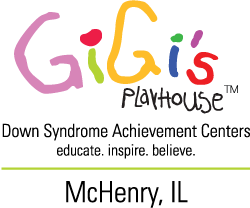Time to blow some bubbles…
So many don’t know of the crucial importance of strong oral motor functionality. It is important for our kiddos to have strong and mobile articulators. Articulators include our lips, cheeks, jaw and tongue. Children with Down syndrome, due to low muscle tone, often have decreased strength when it comes to muscles of the face. Development of oral motor skills includes teaching these muscles to  move in the right way in order for the child to learn to swallow, chew and speak. These children are often difficult to understand and are messy eaters. Some children drool excessively and grind their teeth. Many children demonstrate delayed speech skills with reduced articulation of speech sounds. In designing the oral therapy intervention plan, the SLP may identify activities that include blowing horns, bubbles, and cotton balls; sucking or drinking; up-and-down tongue movements; licking, biting, or pushing on a tongue depressor with lips; or breath control exercises.
move in the right way in order for the child to learn to swallow, chew and speak. These children are often difficult to understand and are messy eaters. Some children drool excessively and grind their teeth. Many children demonstrate delayed speech skills with reduced articulation of speech sounds. In designing the oral therapy intervention plan, the SLP may identify activities that include blowing horns, bubbles, and cotton balls; sucking or drinking; up-and-down tongue movements; licking, biting, or pushing on a tongue depressor with lips; or breath control exercises.
There are many benefits of playing oral motor games with young children. Three of the biggest benefits are increased speech output, increased speech sound variety and improved speech clarity.
Home Activity: Blowing Bubbles
Blowing bubbles helps a child to coordinate their lips, cheeks, and jaw with airflow. This activity helps the child regulate the airflow necessary for speech production, as well as increases lip rounding. Blowing bubbles can target several speech sounds such as “m” “p”, “b”, “g” and “f” and target many single words such as “uh-oh” “up” “pop” “big” “fly” and “go.” Find some bubbles at home and teach your little one how fun bubbles can be!
Written By: Sarah Buti, Speech Language Pathologist
Recent Posts



